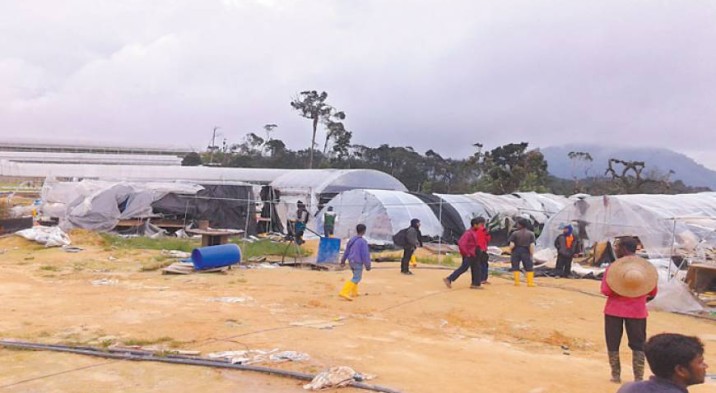
14 February 2016, Dhaka Tribune
The land of promise for tens of thousands of Bangladeshi labourers, Malaysia is fast becoming a place of bondage for them.
A loss of registration status has left between 800,000 and 948,000 Bangladeshi nationals, according to data from Malaysian rights organisation Tenaganita, vulnerable to low-wage exploitation or police raids and detention.
Despite its need for imported labour, the problem of dealing with the 3.2 million undocumented labourers from all over the world has made many Malaysians less welcoming towards Bangladeshi workers, even those using legal channels.
The approval by Cabinet on February 8 of a draft memorandum of understanding to export 1.5 million workers under the G2G Plus scheme has led some quarters in Malaysia to protest against a renewed influx of foreign workers.
Some local Malaysian NGOs are calling for a moratorium on labour imports until existing undocumented labourers are registered.
Malaysia’s registration system ties workers to an employer and a job. So illegal entrants, a minority, and legal arrivals who become undocumented by default if they switch jobs, are at increased risk of exploitation by employers or detention by authorities.
After surviving the “floating coffins” and jungle cages used by people smugglers or the costly legal labour recruitment system offered by the public and private sectors, Bangladeshi workers are often no better off than where they started.
Burdened by the debt of buying passage to Malaysia – whether by legal means or otherwise – most are inclined to try their luck in the hope of recouping their costs and sending money home.
“Bangladeshi workers in Malaysia are vulnerable, especially if they have fallen out of the system,” a senior research volunteer at Tenaganita, who asked not to be named, said.
“Registering undocumented labourers would be a good thing,” the volunteer added.
Documenting labourers enhances their ability to resist being exploited by unscrupulous employers and enables them to have recourse to the law if disputes over working conditions, wages or other matters arise.
Theoretically, registration would essentially mean getting existing foreign workers a job, since legal status is tied to an employer and a job.
Properly utilising the foreign labour force would probably be a win-win situation: workers would enjoy legal protections and underutilised labours would be utilised more fully.
“Without the proper papers, workers have little standing in the courts and power rests overwhelmingly with employers. While Malaysia has superb labour laws, even better than some first world countries, they suffer from inefficient enforcement by the authorities and by delays in the courts,” the Tenaganita volunteer said.
This restoration of legal standing will be important for the 15,000 and 18,000 Bangladeshis who are in custody for various offences and in a variety of holding facilities in Malaysia, including the notorious “immigration depots.”